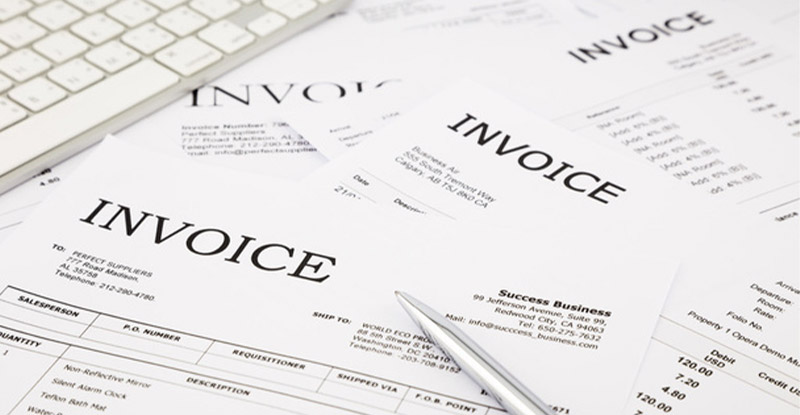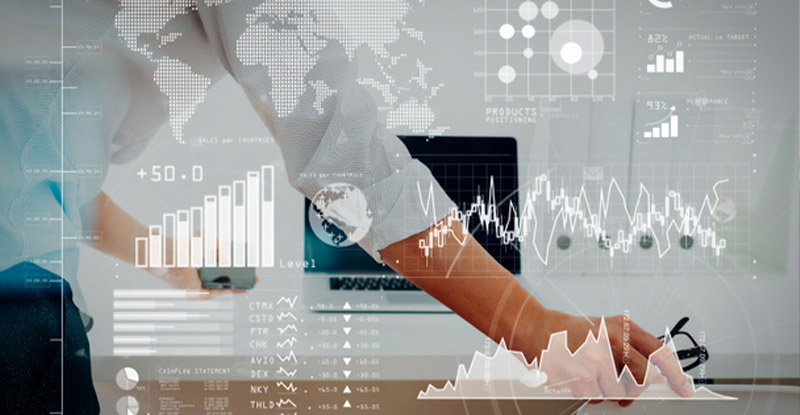Invoice Software:
7 Pros and Cons of Invoicing Software


Explore the transformative power of invoicing software and its ability to optimize your billing processes, enhance financial control, and drive business growth. Embark on a journey of invoicing efficiency and elevate your business to new heights.
In today’s fast-paced business environment, managing invoices efficiently is crucial for maintaining smooth operations and ensuring timely payments. While manual invoicing methods may have sufficed in the past, businesses of all sizes are increasingly turning to invoicing software to reap a multitude of benefits. We are going to explore them in this article.
Discover how InvoiceAction invoicing solution can streamline your billing process, reduce errors, improve cash flow, and enhance customer satisfaction. Embrace the future of invoicing and transform your business operations today!
Book a demo now
Invoicing software automates repetitive tasks, such as data entry, calculations, and formatting, significantly reducing the time and effort required to create and send invoices. This automation frees up valuable time for businesses to focus on other core business activities.
Another significant reason is that manual invoice processing is prone to human error, leading to mistakes in calculations, incorrect customer information, and delayed payments. At the same time, invoicing software eliminates these errors by automating calculations, verifying customer details, and ensuring compliance with invoicing standards.
RELATED: The Ultimate Guide to Invoice: Everything You Need to Know
Timely invoice delivery and accurate billing information contribute to improved cash flow and reduced payment delays. Invoicing software can automatically send invoices to customers, generate payment reminders, and track payment status, ensuring prompt payment collection.
Invoicing software provides a variety of templates and design options to create professional-looking invoices that reflect your brand identity. This enhances your company’s image and reinforces customer trust.
Such streamlined delivery is important for collaboration inside your company, too. Invoice software facilitates collaboration between departments, allowing sales, accounting, and customer service teams to access and share invoice information seamlessly. This improves communication and streamlines the invoicing process.
Efficient invoicing processes, timely payment collection, and professional invoice presentation contribute to customer satisfaction and retention. Invoice software can help businesses maintain positive customer relationships and foster long-term loyalty.
Embrace the future of invoice payments with ArtsylPay! Experience unparalleled efficiency in processing and managing your invoices. Take the first step towards transforming your accounts payable and get bonuses on every invoice paid. Act now to revolutionize
your invoicing process!
Book a demo now
In the U.S., 39% of invoices were paid late in 2022. Most of the time (61%), late payments were due to errors on the original invoice. For larger companies with over 500 employees, more than a quarter of their invoices (28%) were paid more than 30 days late. One of the reasons could be the lack of invoicing software.
It has been estimated that 61% of late payments are a result of compliance or administrative issues, such as receiving the invoice too late or getting inaccurate invoices. This underscores the importance of timely and accurate invoicing, which can be facilitated by invoicing software. So what are the benefits of invoice software? And what is perceived as a bottleneck? Let’s find out.
Invoicing software, widely used by businesses for billing and payment processes, offers various advantages:
These factors should be carefully considered when deciding whether invoicing software is the right choice for a particular business:
Discover the ease of streamlined invoicing with InvoiceAction. This powerful software offers more than just invoicing; it’s a complete solution for managing your financial transactions with precision and ease. Ready to make the switch? Contact us now.
Book a demo now
Here are several real-life case studies of companies using invoicing software, showcasing the diverse benefits they experienced:
Since 2019, Stack Overflow, a software development platform, has been using AP automation software integrated with Intacct ERP. This implementation led to significant time reductions and cost savings, notably eliminating the need to hire two additional finance staff members and accelerating their accounting by five days.
Lucidworks, a company in the software industry, has seen substantial benefits from using payables automation and global payments software. The key improvements include increased efficiency, enhanced spend control, a 50% reduction in financial close time, improved financial controls, better compliance with global regulations, and access to more efficient global payment methods.
Operating in the digital advertising industry, PubMatic started using payables automation and global partner payments software in 2018. The integration with NetSuite ERP has been crucial for PubMatic to efficiently and accurately manage payments to its publishers in various countries and currencies.
RELATED: Optimizing Invoice Automation for ERP Systems
This company, specializing in wellness and fitness products, adopted accounts payable automation software in 2018, integrating it with NetSuite ERP. The software enabled Therabody to maintain a lean accounts payable team while increasing visibility and automating payments, tax compliance, and approval workflows.
A retailer of beauty products, Younique integrated the AP automation software with their NetSuite ERP system, Younique transitioned from a manual accounts payable system to a digital one, which was crucial for scaling the business and increasing visibility.

TuneIn, a company in the video and digital media industry, has utilized AP automation and global payments software since 2019, integrating it with its NetSuite ERP system. The company sought efficiency in global payments and effective compliance solutions.
An online education platform, Skillshare used invoice automation software, integrated with QuickBooks Online, has helped Skillshare elevate its accounts payable and payments processes, supporting its rapid global expansion.
Since 2020, Aceable, an online education provider, has been using AP automation software integrated with NetSuite ERP. The need to digitize and automate their previously error-prone manual accounts payable process was essential for Aceable’s growth strategy, especially for handling multiple entities.
These case studies demonstrate how different industries benefit from implementing invoicing software, with improvements ranging from efficiency gains and cost savings to better global payment methods and enhanced regulatory compliance.

Enjoy the benefits of advanced automation, from data capture to workflow integration. Eliminate errors, reduce payment times, and focus on what truly matters – growing your business. Enjoy cashback on every payment sent!
AP refers to the obligations of a business to pay off short-term debts to its suppliers or creditors. Invoicing software streamlines this process by automating the entry, processing, and payment of bills. It helps businesses manage cash flow, maintain good supplier relationships, and ensure timely payments.
AP functionality in invoicing software often includes tracking due dates, handling supplier information, and generating payment reports.
AR represents the balance of money due to a firm for goods or services delivered but not yet paid for by customers. Invoicing systems play a crucial role in AR management by generating invoices, tracking payments, and updating customer account balances.
Effective AR management helps in maintaining healthy cash flow, reducing debtor days, and improving customer relations through timely and accurate billing.
RELATED: Recurring Invoice: What is It?
E-Invoicing involves the exchange of the invoice document between a supplier and a buyer in an integrated electronic format. This process facilitates faster processing, reduces paper usage, and minimizes human error.
E-Invoicing enables real-time tracking of invoice status and helps in speeding up the approval process. It’s particularly beneficial in maintaining transparency and enhancing efficiency in B2B transactions.
A payment gateway is an online service that integrates with e-commerce sites and invoicing software to process credit and debit card payments. It acts as an intermediary between a merchant’s website and the financial institutions to securely transmit transaction data.
Payment gateways offer fraud prevention tools, ensure data encryption, and are crucial for maintaining secure online transactions. Their integration with invoicing software provides a seamless payment experience for customers.
Cloud-based invoicing solutions are hosted on remote servers and accessed via the internet. These solutions offer flexibility and accessibility, allowing businesses to manage invoicing processes from anywhere. Cloud-based invoicing is scalable, cost-effective, and offers real-time data synchronization across devices. It ensures data security through regular backups and is ideal for businesses seeking operational agility and collaboration.

Invoice automation involves using software to create, send, process, and manage invoices with minimal human intervention. This technology reduces manual workload, accelerates the billing cycle, and improves accuracy by eliminating errors associated with manual data entry.
Automated invoicing systems can also handle complex billing scenarios, send payment reminders, and integrate with other business systems for streamlined financial management.
Recurring billing in invoicing software automates the process of sending invoices for repeat transactions on a regular schedule, such as monthly subscriptions or membership fees. This feature ensures consistent and timely billing, improves customer satisfaction by avoiding missed or late invoices, and is essential for businesses with subscription-based models. Recurring billing also aids in forecasting revenue and managing cash flow.
Expense tracking in invoicing software involves recording and categorizing business expenses to monitor and manage spending. This feature aids in budgeting, facilitates expense approval processes, and provides insights into spending patterns.
Effective expense tracking helps businesses in making informed financial decisions, ensures compliance with spending policies, and simplifies expense report creation.
Tax compliance in invoicing software ensures that all invoicing processes adhere to relevant tax laws and regulations. This feature automatically calculates and applies the correct tax rates, assists in tax filing, and reduces the risk of penalties due to non-compliance.
Tax compliance tools are essential for businesses operating in multiple jurisdictions with varying tax requirements.
Financial reporting in invoicing software involves the generation of detailed reports on a business’s financial activities, including income, expenses, and cash flow. These reports provide valuable insights into financial performance, aid in strategic planning, and are crucial for stakeholders like investors and regulatory bodies.
Financial reporting tools help in tracking financial health, identifying trends, and making data-driven business decisions.
Step into the world of hassle-free invoicing with InvoiceAction. Unlock the potential for faster payments, improved cash flow, and enhanced customer satisfaction. Don’t miss out on this opportunity to revolutionize your invoicing process. Get started with InvoiceAction!
Book a demo now
In today’s competitive business landscape, invoicing software has become an indispensable tool for businesses of all sizes, offering a multitude of benefits that streamline operations, enhance accuracy, improve cash flow, strengthen customer relationships, and drive business growth.
By embracing invoicing software, businesses can transform their invoicing processes from a time-consuming chore into a strategic advantage, paving the way for financial success and long-term prosperity.
Invoicing software is a tool that automates the creation, sending, and tracking of invoices. It streamlines the billing process, helps manage accounts receivable, and can integrate with other financial systems for comprehensive financial management.
Businesses of all sizes, freelancers, and anyone who needs to bill clients or track payments can benefit from invoicing software. It’s especially useful for businesses with regular billing, such as subscription-based services.
By automating the invoicing process, the software minimizes human errors in data entry, ensures correct pricing and tax calculations, and maintains consistency in billing practices.
Yes, many invoicing software options are equipped to handle multiple currencies and can automatically calculate different tax rates, making them suitable for international business transactions.
Reputable invoicing software typically includes robust security measures such as data encryption, secure payment gateways, and compliance with financial regulations to protect sensitive financial data.
Yes, many invoicing software solutions can integrate with accounting software, CRM systems, and payment gateways, allowing for streamlined business operations.

Many modern invoicing platforms offer mobile applications, enabling users to create, send, and track invoices on-the-go.
Most invoicing software provides customizable templates, allowing businesses to add their branding and tailor invoices to their specific needs.
Invoicing software often includes payment gateways, enabling clients to pay directly through the invoice via methods like credit cards or bank transfers, thus expediting the payment process.
Consider factors like ease of use, customization options, integration capabilities, security features, cost, and specific needs like recurring billing or multi-currency support.